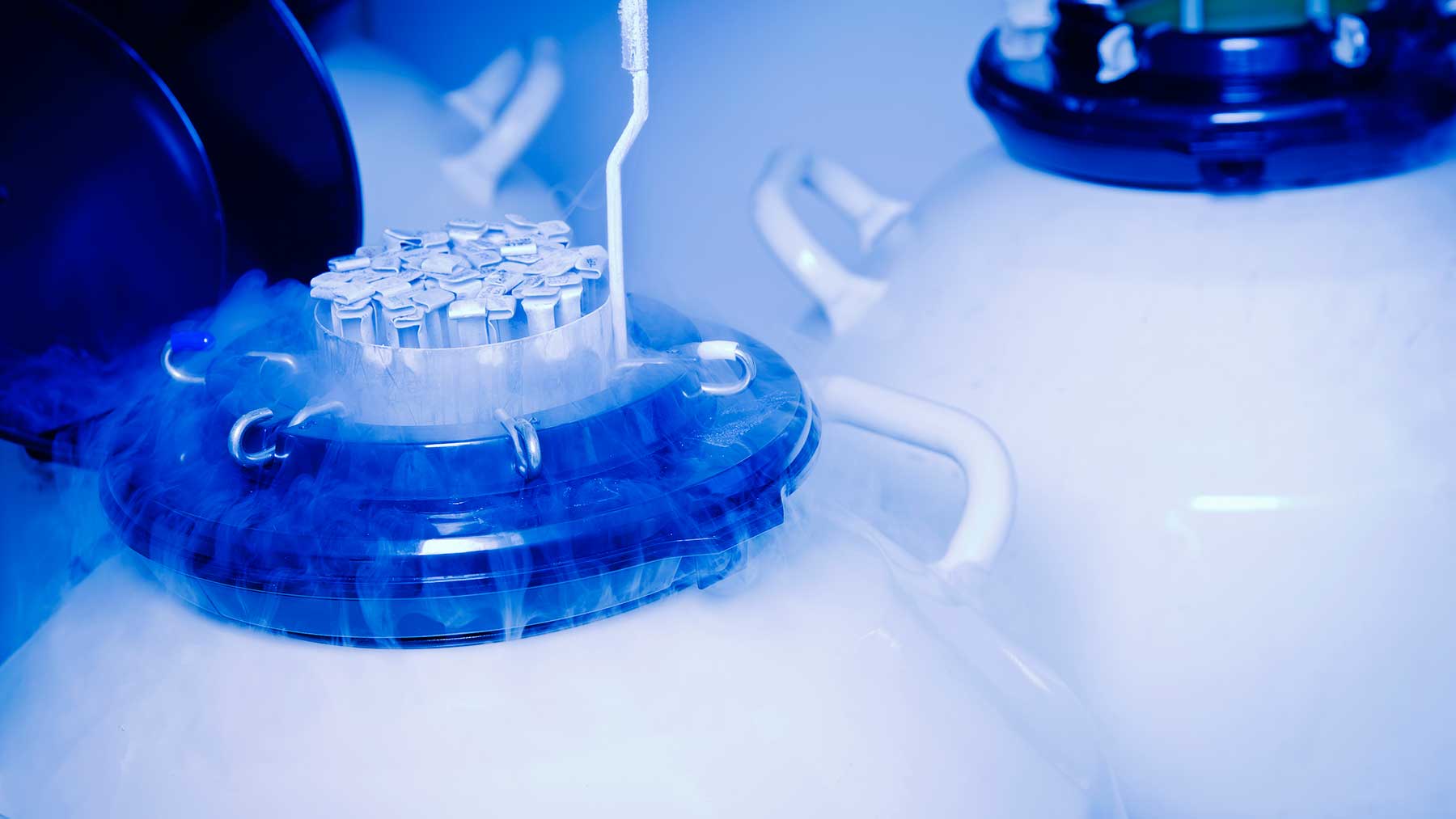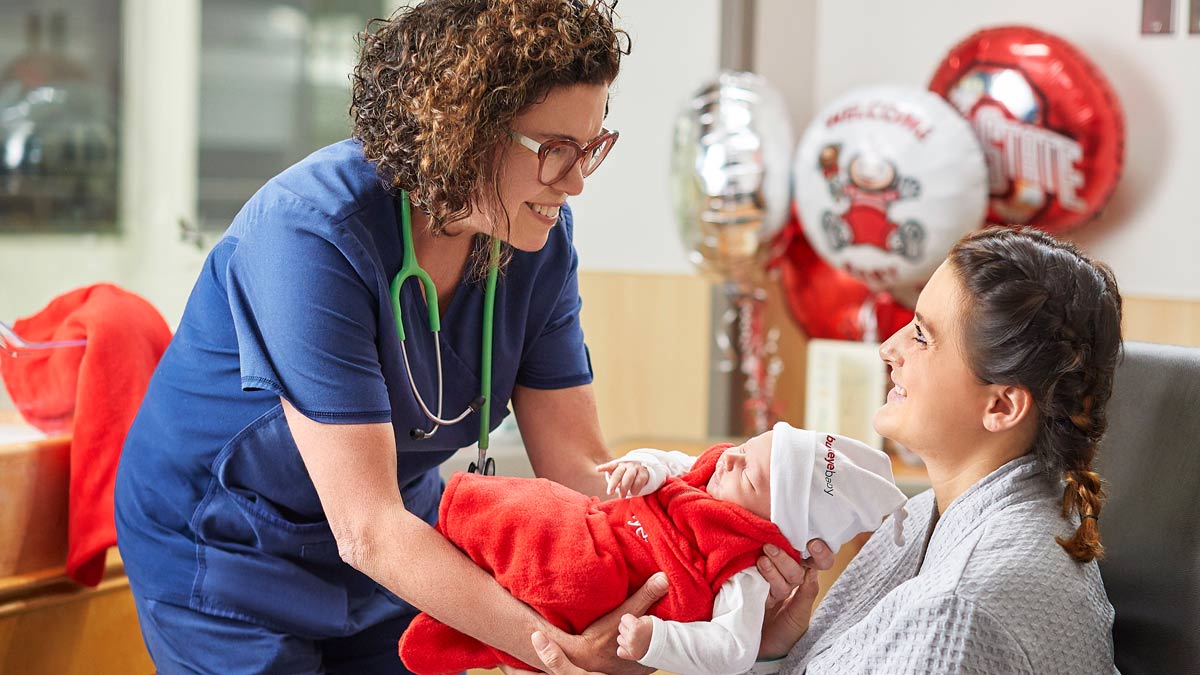Freezing your eggs: What women need to know
 Have you heard about an option for women to freeze their eggs to use when they’re older?
Have you heard about an option for women to freeze their eggs to use when they’re older?
A small but growing number of women are freezing eggs with the help of Beth Kennard, MD, director of the Division of Reproductive Endocrinology and Infertility for The Ohio State University Wexner Medical Center. Dr. Kennard says women give a few reasons for wanting the procedure that’s been getting more attention recently:
- The majority: Women who are getting older and don’t want age out of the opportunity to have children.
- A small minority: Women diagnosed with cancer who are trying to avoid damage from chemotherapy and/or radiation. Cancer doctors increasingly refer patients for the procedure.
- A rare few: Those with a family history of early menopause.
Should I freeze my eggs?
Here are six things that Dr. Kennard wants you to know about freezing and storing eggs:
1. Freezing eggs at a younger age is ideal
But that’s not what happens typically. Eggs frozen when you’re younger – think 20s or early 30s – give you the best chance for a successful pregnancy, Dr. Kennard says.
However, younger women are less likely to freeze eggs because they have more time to get pregnant the traditional way.
Anecdotally, Dr. Kennard estimates that most women she cares for are around age 38.
2. Women who choose to freeze their eggs are happy, even empowered, to have the option
Women seeking the procedure talk about wanting more choices for when to have a baby, Dr. Kennard explains. They say things like:
I want this because I’m not sure where my future is headed.
I’m not at the right point in my career to start a family.
I haven’t found a partner yet with whom I want to have children.
3. A baby is not a certainty if you freeze your eggs
While success rates have improved from five to 10 years ago, people need to understand that the process is not like coming back to your bank account years later and getting all the money you put in, she says.
“This is giving you an opportunity to get pregnant in the future, but it’s not a guarantee.”
Improve your odds: The more eggs you store and the younger you are when you do so equate to better chances of having a baby later. But it still could be unsuccessful.
4. Storing your eggs, in effect, freezes time on some health risks
Risk of chromosomal problems for babies increases as women age. If you freeze eggs at age 29 and deliver a baby at 40, the possible health problems for the child would be the same as those for babies born to 29-year-olds.
Note: Increased health risks for an older pregnant woman, such as gestational diabetes or hypertension, still exist no matter when her eggs are frozen.
5. The process requires some inconvenience and a little pain
But women regularly handle it just fine. Dr. Kennard explains the steps to collecting and storing eggs, which take place over approximately two months:
- Initial consultation – Discuss success rates of getting pregnant based on your age. Your doctor likely will ask whether you would consider going through the procedure more than once.
“The more eggs you have, the better chances of achieving pregnancy,” she says.
- Cost discussion – Insurance typically doesn’t cover the procedure, which can cost several thousands of dollars.
- Fertility drug injections – You’ll be responsible for daily injections of these drugs to override the menstrual cycle. This should help produce many usable eggs instead of a single mature egg.
- Doctor visits – Expect seven to nine office appointments for monitoring with vaginal ultrasound to determine how your body is responding to injections. Some visits are scheduled when you like. Others must happen last-minute based on your body’s response.
- Egg removal – The doctor inserts a needle through the vagina to remove eggs from the ovaries. This hurts some and usually is done without full anesthesia. Most women opt to have the procedure in a doctor’s office, taking medication to help with pain and anxiety and to numb the area around the ovaries. If you choose full anesthesia, the procedure must be completed at a hospital, adding significantly to the cost, she explains.
- Freezing time – The collected eggs are stored at a lab in liquid nitrogen at a subzero temperature to maintain longevity.
- Ready to use – When it comes time to try to get pregnant, sperm is inserted outside the body and one embryo is transferred to the uterus. This feels similar to having a pap smear, Dr. Kennard says.
6. There is a resource to help you pick a quality provider
The government requires fertility clinics to post success rates for some procedures online.
While the database won’t give you a lot of data on successful pregnancies from frozen eggs because the procedure is newer, you can get a good idea about the quality of a center from its success rates for other treatments, Dr. Kennard says.
“If an office is good at one procedure related to in vitro, it’s going to be good at a lot of things.”




